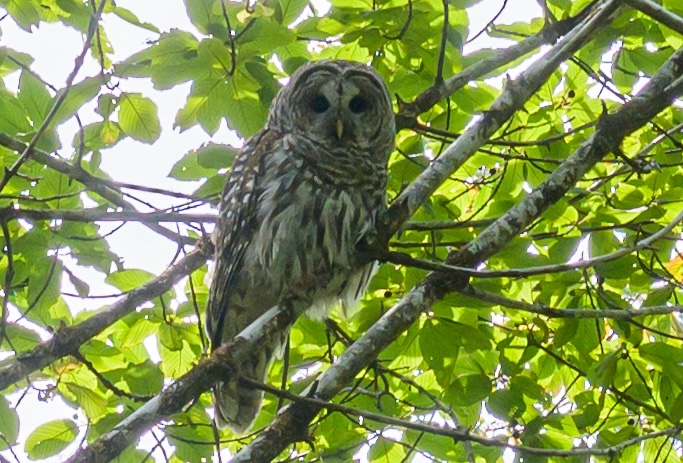
To the editor:
Like many people in the Pacific Northwest, I celebrated the listing of Northern Spotted Owls as a threatened species under the Endangered Species Act. The listing meant that logging would be restricted in the owls’ critical habitat — old-growth forests. At the time there was no other way to save those forests, which were disappearing at an alarming rate.
 Numbers have gone up and down, but the trend for the spotted owl has been down. Too much of their habitat has been destroyed and climate change all but guarantees that those forests are not coming back. “Critical habitat” means nothing else will do.
Numbers have gone up and down, but the trend for the spotted owl has been down. Too much of their habitat has been destroyed and climate change all but guarantees that those forests are not coming back. “Critical habitat” means nothing else will do.
Barred owls are members of the same species and can interbreed with spotted owls, more flexible about their habitat and therefore able to survive in areas where spotted owls cannot. They have also moved into what’s left of the old-growth forests.
The U.S. Fish & Wildlife Service, which oversees the Endangered Species Act, has come up with a brilliant plan — over the next several decades, they will enable the killing of nearly half a million barred owls. Since they’ll only kill 15,000 or so a year, nobody will even notice.
Except the barred owls. Their distinctive call is often described as “Who cooks for you?” but perhaps it would be better if we described it as “Who speaks for me?”
The tradition of protecting the spotted owls is strong. We have an emotional attachment to them. But perhaps it’s time to think about protecting what is rather than a time in the past, before Euro-Americans began serious logging. Those ancient forests grew because of a very different set of climate conditions. They’re not coming back and we need to think of better ways to protect forests — for water quality, carbon sequestration, recreation — instead of pegging protection on a bird whose population is declining no matter what we do.
According to a recent article that appeared in the New York Times, “there is genomic evidence that the barred owl has in fact resided in the Pacific Northwest for thousands of years … the western barred owl is not a new arrival.”
The article, “A Dystopian Effort is Underway in the Pacific Northwest to Pick Ecological Winners and Losers,” was written by three professors of philosophy at universities in Oregon. Read the whole article here.
— Andrea Scharf/Yachats




We humans are the single most over-populated, most invasive, most destructive and only self-destructive species on the planet. And we dare call ourselves Homo Sapiens (sic)? Is there a similar cull in our future?
Thanks for the well articulated response to USFWS ‘project’. I only hope the bird-related organizations, now supporting it, will reevaluate that support as more of the ‘devil in the details’ come out.